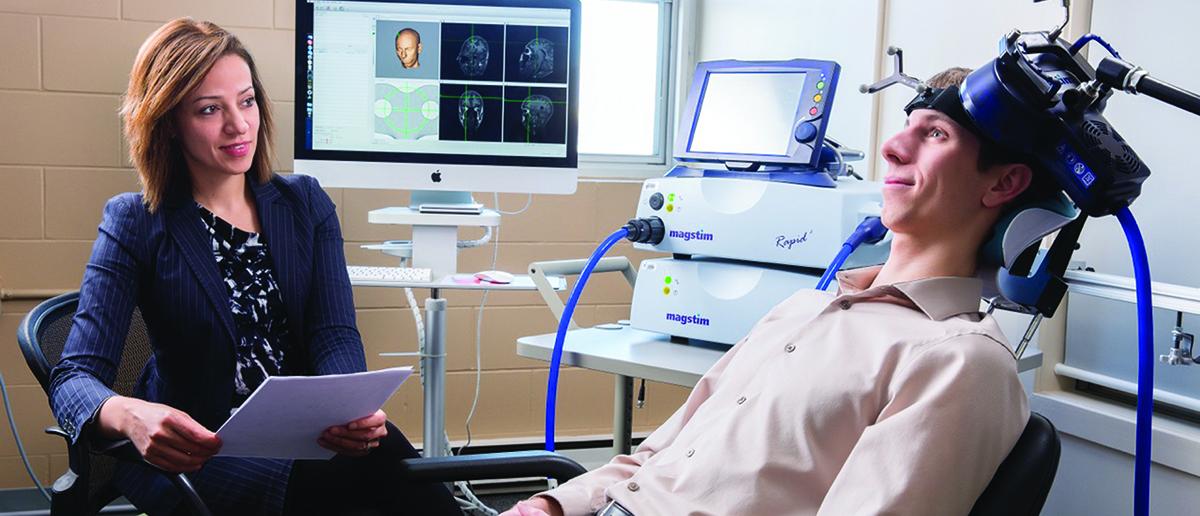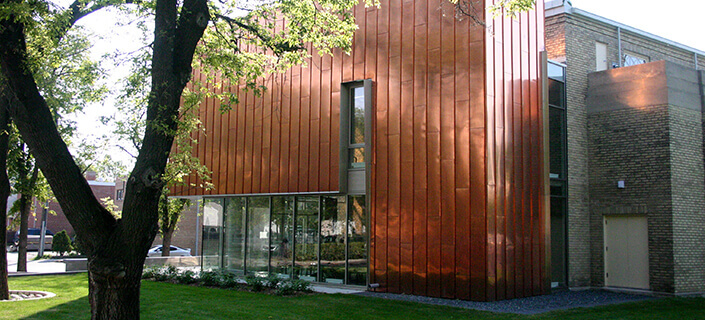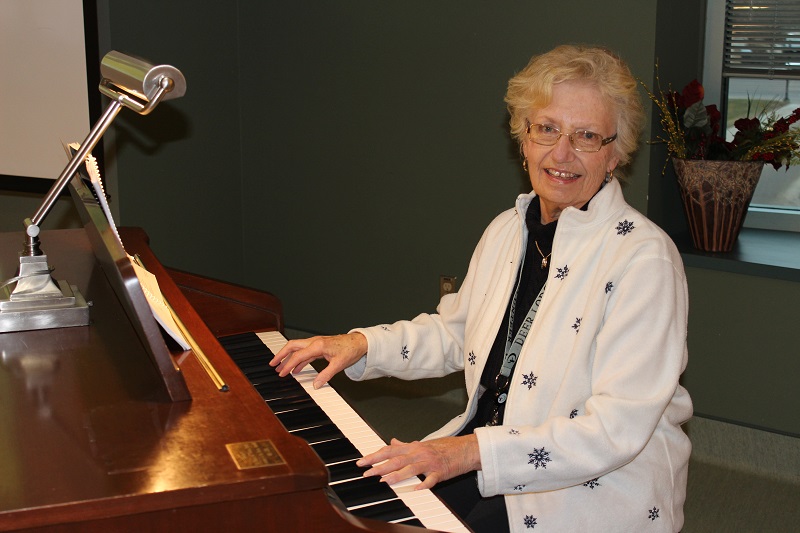
Dr. Mandana Modirrousta with the rTMS machine at St. Boniface Hospital. Photo by St. Boniface Hospital Foundation.
By Greg Holmes
A promising treatment in the fight against depression is now available to clients of the Operational Stress Injury Clinic at Deer Lodge Centre.
Repetitive Transcranial Magnetic Stimulation, or rTMS, is a painless brain-stimulation therapy that has been proven to improve mood and decrease sadness in patients with mild to moderate depression.
rTMS treatment affects the brain’s electrical activity. Magnetic pulses are delivered through a wire coil covered in plastic. The coil is positioned close to the scalp to target areas of the brain responsible for regulating mood.
The addition of rTMS to the OSI Clinic’s arsenal of therapeutic programs, services and tools is especially good news for clients who are unable to take, or do not respond to, medications or other forms of depression treatment, says Dr. Murray Enns, a psychiatrist at the clinic.
“Ordinarily, rTMS is not offered as a ‘first line’ treatment, but rather after one or two trials of treatment with medication have been unsuccessful.”
The OSI Clinic, which is funded by Veterans Affairs Canada, treats military and police personnel suffering from mental health conditions sustained while on duty, whether those injuries are the result of deployment, operations, or training exercises. Operational stress injuries include post-traumatic stress disorder (PTSD), substance abuse, family dynamics issues, physical pain, depression and anxiety.
Many clients respond quickly to rTMS and experience few side effects, if any. “It’s generally a very benign treatment with no negative cognitive or memory effects,” says Enns.
A single course of rTMS involves many variables, including the number and frequency of electromagnet pulses, the location of application of the stimulus, and the type of coil, which influences how shallow or deep the stimulus goes. Because of this, the applicability of rTMS is potentially quite wide, says Enns. In fact, there is growing evidence that rTMS may be effective in treating PTSD, neuropathic pain, brain injury, and movement disorders.
The treatments are provided at St. Boniface Hospital by a neuropsychiatrist and rTMS technician, and does not require an anaesthetic. The OSI Clinic has referred 10 patients for the treatment over the past year. Enns says the clinic anticipates that number will grow over the upcoming year “as clinical staff progressively become more skilled in identifying the best candidates for rTMS treatment, and as patients, families and clinical staff become more aware of people who have had favourable responses to treatment.”
Recent News

Embracing Hope: The Impact of DLC’s Movement Disorder Clinic

Winnipeg Jets Parkinson’s Disease Awareness Game!

